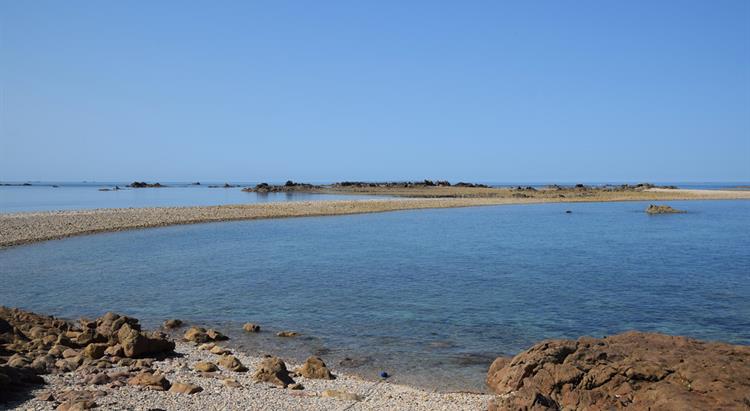12 April 2022

Four areas of Les Ecréhous have been designated as Areas of Special Protection under Jersey's Wildlife Law.
The four zones are being introduced to protect the breeding activities, nesting and the young of wild birds including European shags, great cormorants, common terns, the roseate terns and oystercatchers. Access to defined breeding areas will be restricted and certain activities are banned, to avoid disturbing the nesting birds.
Deputy John Young, Minister for the Environment, has signed an Order which will prevent the following activities during the breeding periods:
- entering a breeding area, unless as an authorised person
- operating a vessel at a speed of 5 knots or more, except in the case of an emergency
- using or operating an unmanned aerial vehicle, unless authorised by the Minister
- using or operating a laser
- discharging a firearm or ceremonial gun
- lighting a firework
- lighting a bonfire (except for a barbecue)
- bringing a dog onto land, unless authorised in writing by the Minister
- playing a recording of bird song, bird calls or other sounds which may attract, alarm or otherwise disturb a protected wild bird
- playing music at a volume which may alarm or otherwise disturb a protected wild bird
Deputy Young said: "Many of Jersey's nesting seabirds visit us from distant shores, and it is our responsibility to ensure they are provided the best protection possible whilst they are with us. Les Ecréhous offer a unique home to the largest colony of common terns in the Channel Islands, but evidence has shown that at times their nesting areas need protection. The Areas of Special Protection there will help us to minimise any disturbance and encourage successful nesting seasons to ensure these seabirds will remain with us far into the future."
The Areas of Special Protection come into effect next week.
Ian Mitchell, chairman of the Ecréhous Residents Association, added: "We are delighted to have worked closely with the Natural Environment team to reach a sensible and pragmatic solution to help protect the wildlife. It is sometimes a difficult balance to preserve the natural environment whilst allowing humans, both residents and visitors, to continue to enjoy the very special place that is the Ecréhous, as they have done for hundreds of years. We believe the Order achieves that balance, but will be maintaining the very constructive dialogue we have with the department to monitor progress. There is no denying that the ever-increasing number of visitors does present challenges to the unique site."